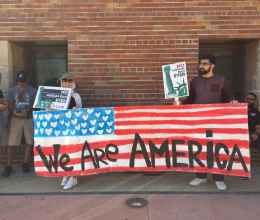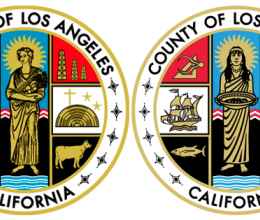The right of every American to practice his or her own religion (or no religion at all) is among the most fundamental of the freedoms guaranteed by the Bill of Rights. The American Civil Liberties Union's long history of working to ensure that religious liberty is protected goes back to the Scopes trial of 1925, long before other groups began to argue for religious freedom. The Free Exercise Clause of the First Amendment mandates that the government should not interfere with people's religious rights to believe and worship freely. The Establishment Clause of the First Amendment prohibits the government from playing favorites and supporting one religion over others, and from favoring religion over nonreligion. The ACLU has been involved in a long series of prominent cases under both the Establishment Clause and the Free Exercise Clause that have argued against government interference in the religious sphere.
Religion is pervasive in the United States - and it is constitutionally protected. The ACLU has long defended individuals, families and religious communities who wish to manifest their religion in public. Particularly when compared to other industrialized democracies, religion plays a prominent role in American public life. Churches, synagogues, mosques, temples, cathedrals and Gurdwaras are plainly visible in the public sphere, and their right to display religious symbols and to construct religious edifices is protected by the Constitution and by statutes. The ACLU has actively supported the right of people to preach their religion in public places and to go door-to-door to spread their religious messages. The Constitution properly protects the right of religious figures to preach their messages over the public airwaves. Religious books, magazines and newspapers are freely published and delivered through the U.S. Postal System. No other industrialized democracy has as much religion as does the United States.
Some people, however, mistakenly use the word "public" when they really mean "governmental." This can be seen, for example, with Ten Commandments monuments. The right of churches and families to erect such monuments on their own property is constitutionally protected, regardless of whether it is public or private and regardless of whether someone is offended or not. A Christian cross that is fully visible from a public sidewalk is constitutionally protected when placed in front of a church. But if that same cross were moved across the street and placed in front of city hall, it would violate the Constitution. The issue is not "religion" -- as the rhetoric misleadingly suggests -- but whether the government should be making decisions about whose sacred texts and symbols should be placed on government property and whose should be rejected.
The ACLU and Religious Liberty
Related Issues
Related content

ACLU Applauds Governor Brown for Signing Bill to Keep Californians'...
October 15, 2017ACLU Filing Lawsuit Challenging Trump Administration Contraceptive...
October 6, 2017Iranian Man Turned Away During First Travel Ban Reaches Settlement...
June 26, 2017Supreme Court to Hear Trump Muslim Ban Challenge
June 26, 2017ACLU of California Statement on Trump Administration's...
January 25, 2017ACLU SoCal and LASD reach agreement ensuring Muslim inmates access...
July 16, 2014ACLU SoCal calls on L.A. Sheriff John Scott to let Muslim inmates...
March 28, 2014